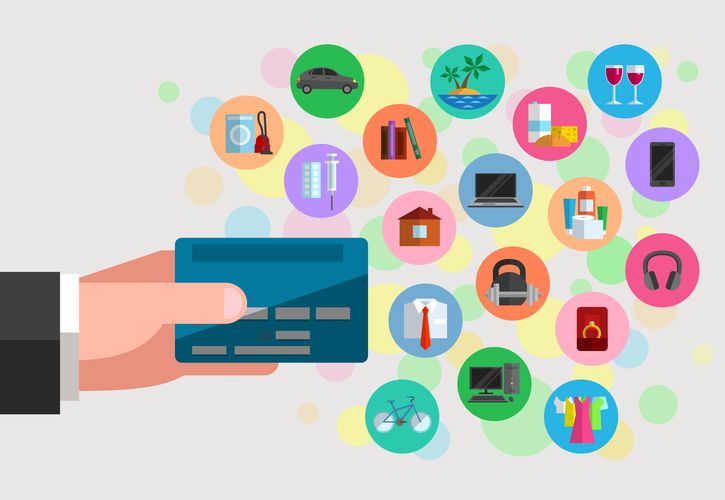UK DIY News
BRC-KPMG: Record Decline For Retail Sales

The BRC has reported on retail sales for the four weeks between 5 April - 2 May 2020.
- On a Total basis, sales decreased by 19.1% in April, against an increase of 2.4% in April 2019*. This is the worst decline recorded since our monitor began in January 1995, reflecting the effect of lockdown measures. It is below the 3-month and 12-month average declines of 7.5% and 2.3% respectively, both record declines in themselves.
- UK retail sales increased 5.7% on a Like-for-like basis from April 2019, when they had increased 2.0% from the preceding year*. In April, Like-for-like sales has been measured EXCLUDING temporarily closed stores (but including Online sales); therefore the figure is primarily driven by Online sales.
- Over the three months to April, In-Store sales of Non-Food items declined 36.0% on a Total and 17.3 on a Like-for-like basis. This is worse than the 12-month Total average decline of 11.5%. For April, the like-for-like sales, excluding temporarily closed “non-essential” stores, was in double digit decline.
- Over the three months to April, Food sales increased 6.0% on a Like-for-like basis and 4.5% on a Total basis. This is higher than the 12-month Total average growth of 1.6%. For the single month of April, Food was in decline year-on-year.
- Over the three-months to April, Non-Food retail sales decreased by 4.4% on a like-for-like and 17.5% on a Total basis. This is below the 12-month Total average decline of 5.6%. For the single month of April, Non-Food was in decline year-on-year.
- Online Non-Food sales increased by 57.9% in April, against a growth of 4.0% in April 2019*. This is above the 12-month average growth of 8.5%.
- Non-Food Online penetration rate increased from 29.9% in April 2019 to 69.9% this April.
* Note 2020 is a 53-week year in the ONS calendar: as a result of the extra week in January 2020, the comparable 2019 performances cited here may differ from those published last year, due to the one-week shift in the comparison.
Helen Dickinson OBE, Chief Executive | British Retail Consortium
“With lockdown measures in full swing, April saw a record fall in retail sales. Food sales were disappointing, with the virus preventing large family gatherings and turning Easter into a more modest affair. For many non-food goods, such as clothing, footwear and large household items, the decline was particularly steep as consumers responded to lockdown conditions. The proportion of goods purchased online rose sharply, with products such as games consoles, bicycles, office equipment, and haberdashery, all high on the list. However, even the dramatic rise in online sales could not make up for the loss of instore purchases. Coronavirus has accelerated many of the trends seen prior to the outbreak and it is likely that as the lockdown wears on, these new shopping habits – such as the trend towards online purchases - will become more entrenched for many consumers.
“While retailers have a lifeline through various Government loans and support, they need to know this will continue beyond the current deadlines. Government should also step in to support on rents for those retailers still facing rent costs, despite little or no sales. Without this, businesses may be forced to close – threatening jobs and further harming local communities. Monday’s Recovery Strategy was an opportunity missed to provide a clear and detailed roadmap, outlining when and how shops will reopen after the 1st June, so that retail can help get the economy moving and the public can get all the goods they need.”
Paul Martin, UK Head of Retail | KPMG
“With the nation firmly under lockdown throughout April, drastic retail sales declines were to be expected. Total sales fell a staggering 19.1% compared to last year – eclipsing any previous fall since records began – but that pain hasn’t been felt equally. So few physical stores, or indeed retailers, were open for business in the month, making like-for-like comparisons hard to establish, but the ability to continue trading or leverage online channels was beneficial for the fortunate few though.
“Aside from ‘essential’ retailers still operating physically, consumers have had little alternative but to log-on, and online sales were up nearly 60%. As you’d expect with consumers staying at home, the focus has been on home-related goods, as well as trying to keep entertained. Computing equipment, household gadgets, as well as toys and baby equipment were among the categories that performed strongly. Meanwhile other non-food categories, especially fashion, experienced a significant decline.
“The disparities in retail continue, not only between ‘essential’ and ‘non-essential’, but also between those with an online channel and those without. Eyes are firmly fixed on how the easing of restrictions will impact consumer spending going forwards, with the acceleration of online sales likely here to stay and overall demand in certain categories, like fashion, remaining subdued for some time.”
Commentary
Simon Yeoman CEO of Fasthosts comments:
“After March’s sharp decline in retail sales, and with most non-essential shops being closed for over a month now, it’s perhaps unsurprising to see the 60% increase in online non-food sales during April as the country adapts to new online shopping habits. Although online shopping is not a new phenomenon, current events are causing an ecommerce boom like never before, for both consumers and businesses.
“Businesses who never before considered their online presence are now having to adapt to survive, and in the web hosting industry we are seeing a surge in demand for website and online shop builder tools. Those who can no longer open their doors on the high street are looking to open new digital doors instead. It’s the expectation that this trend will continue even after the spread of coronavirus has eased, and non-essential shops begin to open again.
“Those businesses who ignored the importance of a digital presence have been forced to embrace it, and they’ll still continue to benefit after social distancing measures are eased. Consumers are also changing how they operate and online sales are soaring across a range of industries – from fashion and retail, to computers and accessories. With no one on the streets, there’s no way for people to find you without a website.”
Source : BRC and https://www.fasthosts.co.uk/
Thank you for the excellent presentation that you gave at Woodbury Park on Thursday morning. It was very interesting and thought-provoking for our Retail members. The feedback has been excellent.











































